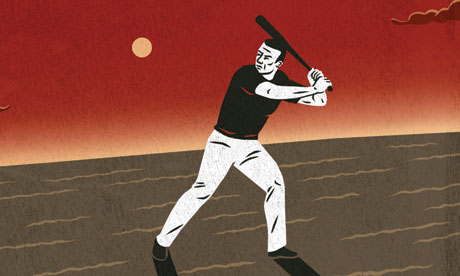
Would you like to hear an inspiring anecdote from Sir Richard Branson about the importance of embracing failure? No, I didn't think so. And if you're anything like me, this isn't solely because there's something about the feisty, non-tie-wearing space entrepreneur that grates. It's also because inspirational advice in general only rarely manages to inspire. This applies to most of the stories in a book entitled The Best Advice I Ever Got: Lessons From Extraordinary Lives, published in paperback next month. (Spoiler: they triumphed over adversity, mainly.) Which is why, in recent months, I've found myself collecting more and more examples of a genre that should probably be labelled "anti-inspiration": tales of high achievers and history-makers that reveal them to be as insecure, disorganised or lazy as the rest of us.
Flippant though this may sound, anti-inspiration really can be more cheering – even more inspiring – than the positive kind. To hear Sir Richard opine that "being unafraid of failure is one of the most important qualities of a champion" might help you cope with a setback or two. (Just as long as you don't think too hard about the "survivor bias", that is. Branson thinks that learning to tolerate failure helped make him a winner, but who knows how many would-be Bransons learned to tolerate failure, then just failed?) But it's surely vastly more reassuring to learn that by 1883, having published The Portrait Of A Lady, Henry James still believed he was a failure. "I must make some great efforts during the next few years… if I wish not to have been on the whole a great failure," he wrote in his journal. "I shall have been a failure unless I do something great!"
The point here isn't that berating yourself is a good thing, still less that engaging in self-beration will make you a great novelist. The purpose of anti-inspiration is simply to remind you that your inner mental weather is a terribly unreliable guide to your accomplishments. And that because you have access only to your own inner weather, you rarely consider how many others, even at the most dizzying heights of achievement, are feeling the same. One result is a warm sense of fellow-feeling with the kind of figures who'd otherwise seem utterly distant. It turns out they are as prone to anxiety as you are.
A few other gems from my anti-inspiration collection: did you know that the psychologist BF Skinner, in order to make himself work, had to wire a timer to his desk lamp, as a method of clocking in and out? Or that Harry Truman's mother-in-law never came to accept him as good enough for her daughter, even once he was president? The diaries of Leo Tolstoy constitute some of the best anti-inspirational texts ever published. Obsessed with self-discipline, Tolstoy constantly devised new rules – get up at five, walk for an hour a day, visit brothels no more than twice a month – only to succumb to the lure of gambling and prostitutes instead. (The next day's entries were filled with regret: "I was too weak", "Must make an effort to overcome indolence.") Happiness, research keeps telling us, is at least partly relative, so one sure-fire way to feel good is to convince yourself that you're superior, in some respect, to other people. But it follows that it's just as encouraging to find ways in which others aren't quite so superior to you.
oliver.burkeman@theguardian.com; twitter.com/oliverburkeman

